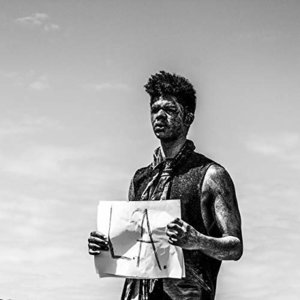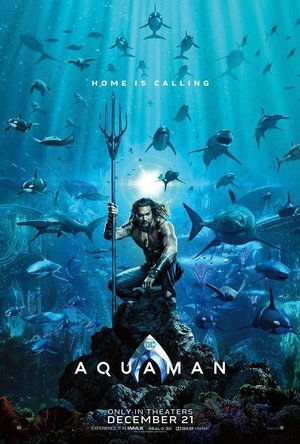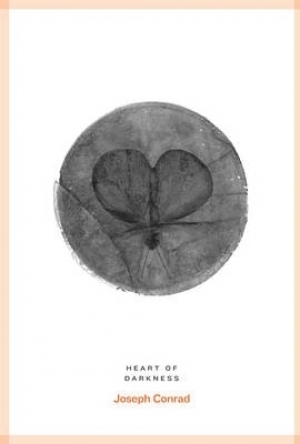Bong Mines Entertainment (15 KP) rated L.A. - Single by Kyan in Music
Jun 18, 2019
“I came across an incredible self-portraiture photographer, Danielle Terblance, on Instagram. I had had this video concept in the back of my head for a while to create a narrative around a series of still images. We created it using 500 photographs, edited down from the 4,000 we took over the two shoot days. The piece follows my character as a fallen angel, attempting to navigate his way through the South African landscape back to The City of Angels (L.A.).” – Kyan
‘L.A.’ tells an interesting tale of a young guy with an aching heart who relocates to L.A to get his mind right.
Apparently, he tries his best to cope with life after experiencing an emotional breakup with his ex-girlfriend. Even though L.A. is five thousand miles away from where she stays, he can’t seem to get her out of his mind.
Later, he admits that he’s been lying on a sofa for a week. Also, in his mind, she’s everywhere he goes and in everything he knows. Therefore, he realizes that he needs her in his life.
‘L.A.’ contains a bittersweet storyline, ear-welcoming vocals, and lush instrumentation flavored with sentimental elements.
“The narrative concept came from my personal experience of traveling to L.A. after a breakup with my long-term girlfriend and record label. I’d always viewed L.A. as this distant, shining beacon of dreams and opportunity. Then, all of a sudden, I was going there under really difficult circumstances. Due to the breakups, the trip had switched from being something I was running to, to something I was running from. In the weeks before the trip, L.A. became an escape, a chance for air amongst the intense emotional claustrophobia I was experiencing inside.” – Kyan
Since releasing his debut EP, entitled, “The Purple Experiment” in 2014, Kyan has toured with the critically acclaimed trio, London Grammar.
Also, he has had a series of collaborations with the likes of Cedric Gervais & Just Kiddin, Duke Dumont, electro-pop king Madeon, Benga, and Knox Brown.
https://www.bongminesentertainment.com/kyan-la/
Merissa (13730 KP) rated The Krinar Experiment in Books
Dec 17, 2018
Drako is a Krina, entering Earth's atmosphere for the first time, and his pod wasn't up to dealing with earth's atmosphere. He loses his invisibility, and then crash-lands in the middle of a sports stadium in South Africa. He is captured by the Secret Service and tortured. They call Ilse in to heal him, as they have plans that don't include him dying. The attraction between Drako and Ilse is instantaneous, but there is a big (read MASSIVE) misunderstanding between Ilse and Drako. This eventually leads him to kidnapping her... and I'll let you read the rest for yourself.
Now, I'm going to be perfectly honest here - I love Sci-Fi Romances, and I love Charmaine Pauls, but I didn't love this book. I enjoyed it, yes, but I didn't love it. Why? Well, for a start, that misunderstanding I mentioned? Yep, it's a biggie, but Drako acts like a jerk about it, and refuses to hear anything that Ilse has to say. Also, the things that he does is borderline dub-con, but is given the approval because she gets wet, and then asks for it. I've read dub-con before and never had an issue with it, but something about this just sat wrong with me.
There is an amazing amount of detail in this book, but you are never overloaded. With good characters, and bad, there is someone for everyone. There are no editing or grammatical errors that disrupted my reading flow, and I did thoroughly enjoy this story. I would be happy to read more in this series, and definitely recommend it for those who want more from this world.
* A copy of this book was provided to me with no requirements for a review. I voluntarily read this book, and my comments here are my honest opinion. *
Merissa
Archaeolibrarian - I Dig Good Books!
LeftSideCut (3776 KP) rated Aquaman (2018) in Movies
Jul 16, 2019 (Updated Sep 1, 2019)
It actually starts off pretty strongly, as we're introduced to all the players involved, and all of the important locations.
Jason Mamoa is a very likeable guy, but it takes a while to warm to his gym bro approach Arthur Curry, but he managed to win me over eventually, the charming hairy bastard.
Patrick Wilson is pretty good as Ocean Master, and it's nice to see veterans like Willem Defoe and Nicole Kidman (who gets an early and very brief action scene which I reckon trumps anything in Batman vs Superman).
The story set up is all fine and straightforward, and some of the visuals are pretty impressive, especially sweeping shots of Atlantis.
When the story heads back to land at the mid point is where the films takes a bit of a nosedive.
It all just becomes a bit...boring.
It also falls into the weird "play-a-cool-song-at-random-intervals" trap that Suicide Squad enjoyed flogging to death. (Whoever decided to put that God awful hip hop cover of Africa in the mix deserves a slap)
I also feel that Black Manta was sort of wasted here. He's sidelined to make room for other story lines, which I guess is fine if he's being set up for a bigger role in future installments, but here he just feels kind of tacked on.
The last act of the film is a CGI orgy, but it stands apart from a lot of films in the genre, as it's actually colourful! The sheer scope of the last battle is absolutely absurd, so absurd that it kind of works.
The CGI in question is pretty hit and miss throughout the film - sometimes it looks horrific (young Willem Defoe is haunting) and other times, it's pretty flawless, making for some pretty good action shots.
Overall, for me, the DCEU is still struggling to leave it's mark, but Aquaman and this years Shazam seem like a small step in the right direction.
Phil Leader (619 KP) rated Heart of Darkness in Books
Nov 14, 2019
The story itself is a story within a story, being related by a sailor on a ship while it is waiting at anchor in the Thames estuary. To pass the time he tells his crewmates of the time he spent several years previously working for a trading consortium in Africa, piloting a boat to the trading station up river to pick up ivory.
His manager is wary of the man who runs the trading station - Mr Kurtz. He believes he is ultimately after his job. It is clear that Kurtz is a very talismanic and polarising figure, some hating him and others talking about him as if he is some sort of deity. The narrator cannot wait to meet him but suffers many delays (including having to repair his boat) before he can set off up river. By the time he does the weight of expectation and anticipation has created his own expectations of what he will find. But what will the reality be?
This is s slim volume, and to be honest a slim plot. But the brilliance is in the telling of the story. Conrad carefully evokes the feeling of the oppressive heat and frustration of not being able to head up the river. But once underway the jungle closes in and is claustrophobic and full of mystery and hidden dangers. The attraction is not in the tale itself but in the way it is told.
By the time the trading post is reached the expectations of Kurtz have been raised in the reader as much as in the narrator and events unfold in an unexpected direction.
As with Apocalypse Now the journey up the river is everything and the eventual destination looms until it consumes the characters and dictates their actions.
A word of caution about the language used. The 'N' word is frequently used and sometimes in a derogatory manner so if this offends it is best to avoid.
Overall, a diverting read and a masterclass in using descriptions to set the tone for the reader. But probably not essential.

Lingrid - Language Cloud - Translate & Learn Lingo
Education and Utilities
App
Translate multiple languages at once! Listen to memorize. Edit and organize. Supported by the cloud...
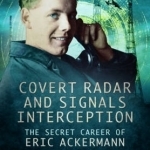
Covert Radar and Signals Interception: The Secret Career of Eric Ackermann
Peter Jackson and David Haysom
Book
Of German stock dating back to 1530 in Saxony, Eric George Ackermann GM was born on the Isle of...
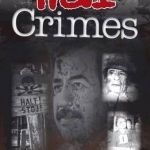
Crimes of the Century: War Crimes
Book
At the beginning of September 2013, top of the international agenda was to stop any further deadly...
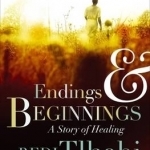
Endings and Beginnings: A Story of Healing
Book
Redi Tlhabi, warm-hearted, charismatic and loved throughout South Africa is as well known for her...

Going Global: Bundle Book + Studio Access Card: The Textile and Apparel Industry
Grace I Kunz, Elena Karpova and Myrna B Garner
Book
"Going Global" provides a coherent framework for understanding the textiles and apparel industry in...
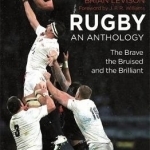
Rugby: An Anthology: The Brave, the Bruised and the Brilliant
Book
Inspiring and irreverent by turns, Brian Levison's new anthology has drawn on rugby's wealth of...
